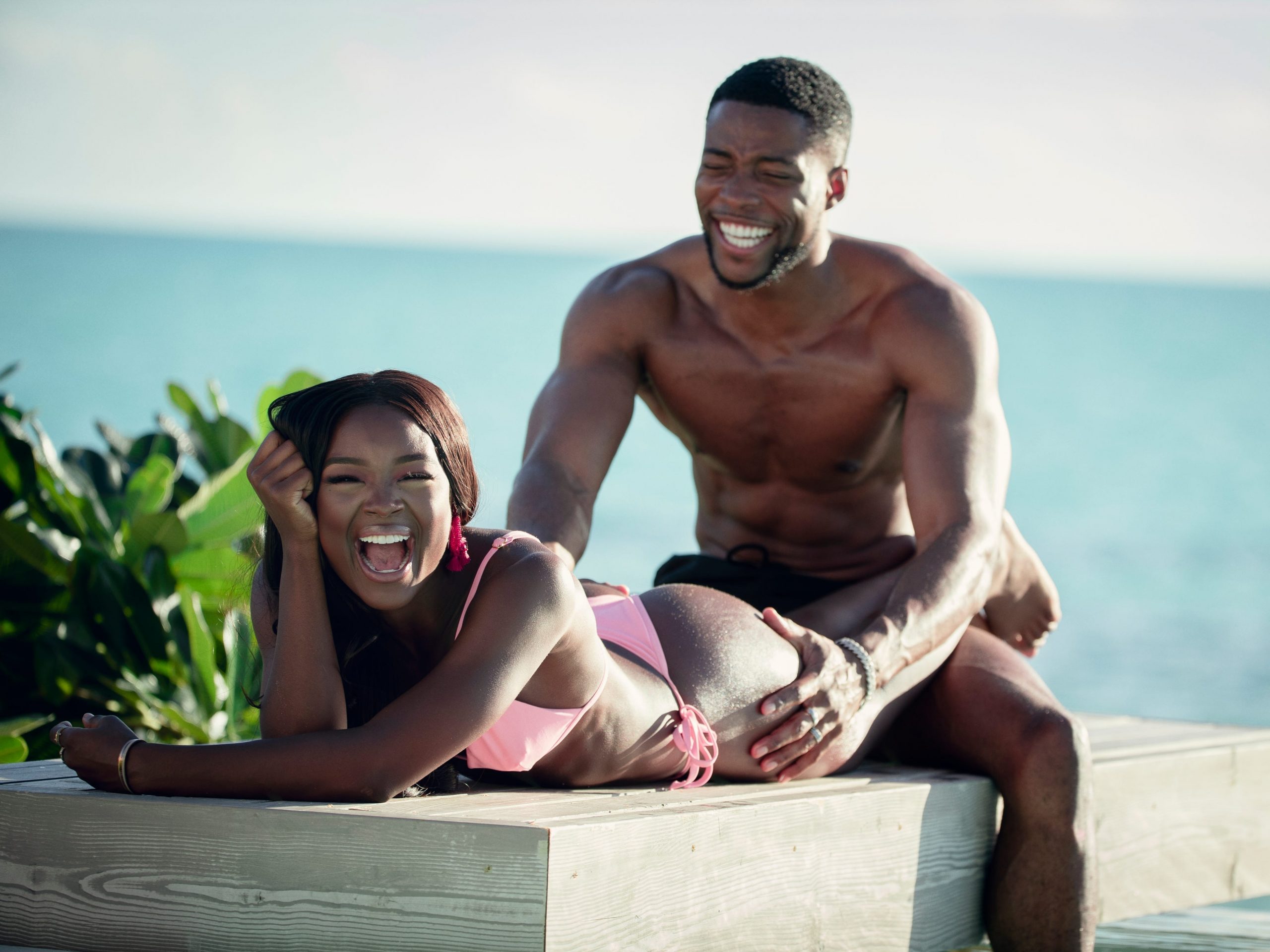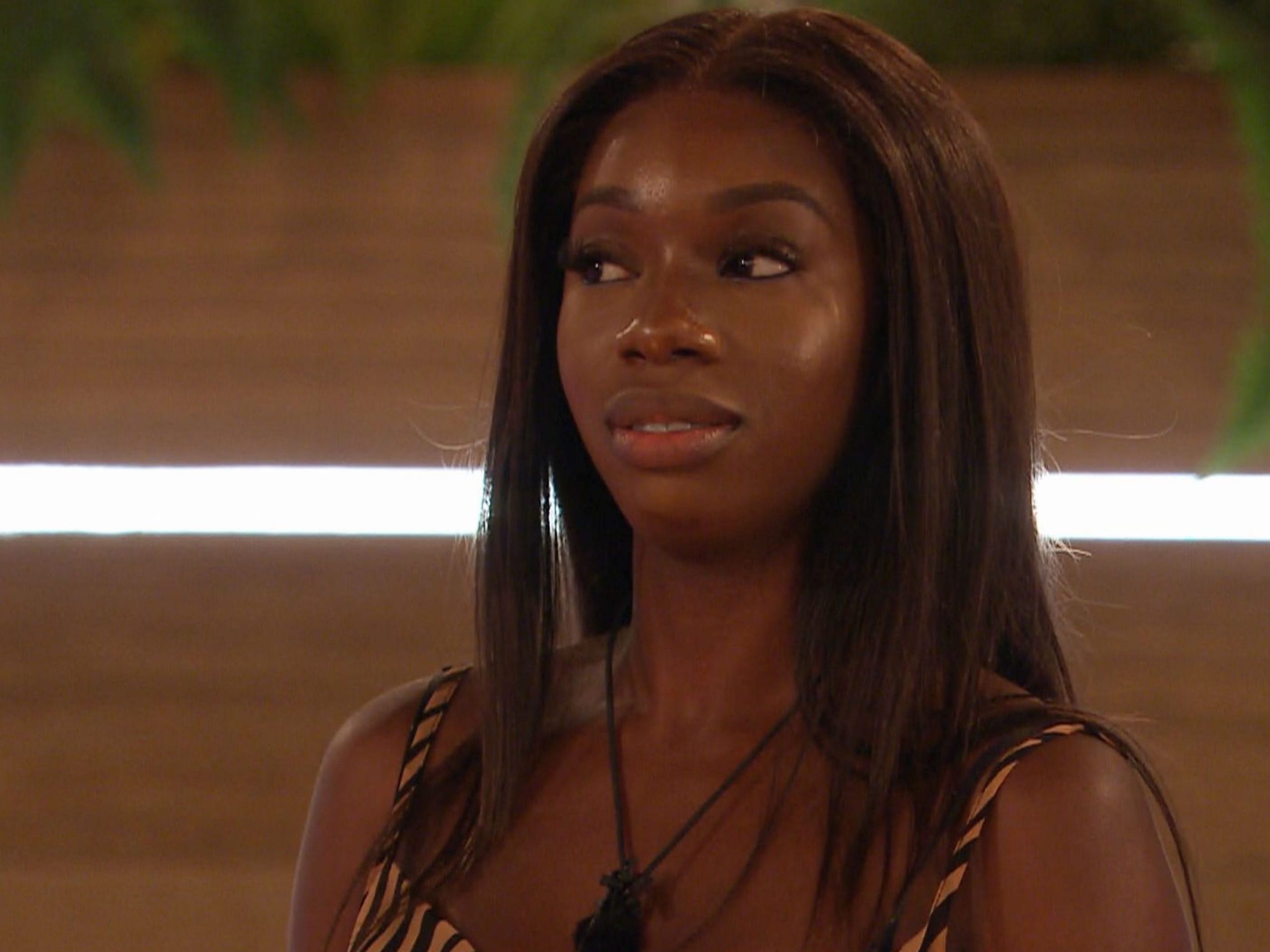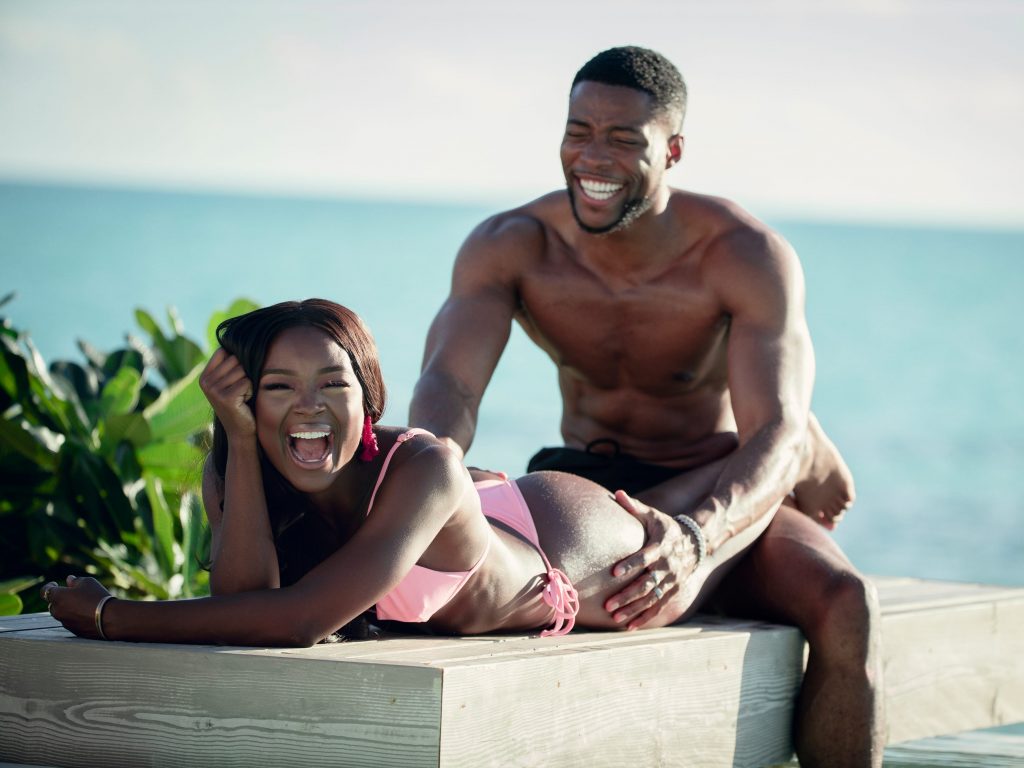
Tom Dymond/Netflix
- Black female viewers are tired of how "Love Island UK" mistreats its Black female contestants.
- "Too Hot to Handle" is much better at featuring a diverse cast with diverse romantic interests.
- The Black women on "Too Hot to Handle" aren't portrayed as monolithic, undesirable, or desexualized.
- Visit Insider's homepage for more stories.
"Too Hot to Handle" returned for its second season on June 23, and the hit Netflix reality television show is currently competing with the social-media hype surrounding ITV's long-standing UK phenomenon, "Love Island."
The two series are both dating competition shows that bring hot singles together so viewers can watch attractive individuals form meaningful connections with each other, all the while (not so secretly) enjoying the occasional over-dramatized, producer-encouraged fight to top it all off.
However, over the years, many fans (particularly Black female fans) have noted their growing dissatisfaction with "Love Island" because of the show's continuous racism, colorism, and misogynoir.
In fact, "Love Island" has had diversity issues from its start; the first two seasons didn't feature any Black contestants at all. The UK-based show has since attempted to rectify this by adding more diversity, but that continues to fall flat because the Black participants have little to no chance of forming romantic connections in the way other contestants can.

ITV
This is because, ultimately, "Love Island" continues to overwhelmingly cast people who aren't attracted to darker-skin individuals, and dark skin Black women mainly reap the consequences of this "oversight." This has caused many Black female viewers to abandon watching the show because being reminded of the harsh realities of dating as a Black woman has become too hard to bear.
"Too Hot to Handle," on the other hand, has gotten things right from the start.
The Netflix dating competition show succeeds exactly where 'Love Island' fails
On "Too Hot to Handle," Black female contestants are not portrayed or treated as undesirable, given little screen time, or painted as racial stereotypes.
Rather, the Black women on this show have multiple options for partnership, are introduced not only in the main cast but also as bombshells, and have an equal chance for a happy ending on the show (regardless of whether relationships last on the outside).
For instance, on the first season of "Too Hot to Handle," Rhonda Paul began the series as a starter contestant and was desired and pursued by two men, David Birtwistle and Sharron Townsend. Over the course of the season, the two vied for Rhonda's attention, and notably, they did this without veering into fetish territory or acting like her male saviors, rescuing her from the confines of undesirability.

Netflix
By the end of the show, Sharron was ultimately who Rhonda chose; thereafter, she and Sharron began exclusively dating. Although the pair broke up after the series was over, Rhonda's depiction in that first season set the tone for how Black women could be loved, pursued, and desired on this reality dating show in a way that's not pitying, condescending, or demeaning.
By the second season of the series, the hit Netflix show would only build on the extensive possibilities and roles Black women could adopt.
Elle Monae was "Too Hot to Handle's" first Black female bombshell and entered into the show alongside Tabitha Clifft. The two proved to be threats to many of the existing couples but to none moreseo than Nathan Webb's coupling with New Zealander Larissa Townson.
Elle went on a couple of dates with the male contestants. However, her date with Nathan had enough sparks to potentially turn his head away from Larissa (his "day-one couple") onto a gorgeous bombshell who provided him with the romantic chemistry he was looking for all along.
In fact, despite Elle and Nathan deciding to just be friends after all, their initial connection was so impactful that Larissa voluntarily sent herself home, as Elle's arrival highlighted too many cracks in her early pairing with Nathan.
But perhaps Melinda Berry - the indisputable breakout star of "Too Hot to Handle" season two - was the solidifier that a Black woman on a reality TV dating show was capable of having real "main character energy" as Danai Nesta Kupemba put it for INews.
Melinda was another starter contestant who wasn't starved for the choice of men who wanted her as equally as she wanted them. Two male contestants, in particular, Frenchman Marvin Anthony and New York native Peter Vigilante, found themselves in a love triangle, both vying for Melinda's attention.
Melinda ended the series in a relationship with Marvin. However, since the two have broken up after leaving the show, Melinda has reconnected with Peter. And the two are now keeping fans thoroughly entertained on social media with their rekindled romantic relationship.
Needless to say, on "Too Hot to Handle," there's an array of narratives for Black women to adopt (on and off the show) that aren't monolithic.
On this show, Black girls can be the confident bombshell, the one who finishes the show in a real relationship, or the messy contestant who can't stop entertaining other men despite being part of a pairing already. Thus proving it is possible to cast contestants who give each other (but especially Black women) an equal chance at finding love or having screen time outside of the struggle narrative we have grown so accustomed to seeing on other reality television dating shows.
"Too Hot to Handle" is not perfect - no reality television show is. But if you're a Black girl who was put off reality dating shows because of "Love Island," try re-indulging in the shameless fun of the genre and watch "Too Hot to Handle" instead.
Because in one year, "Too Hot to Handle" did what UK's "Love Island" has failed to do in its entire run - simply showcase Black women searching for love through a multi-faceted lens, the same as every other contestant.
